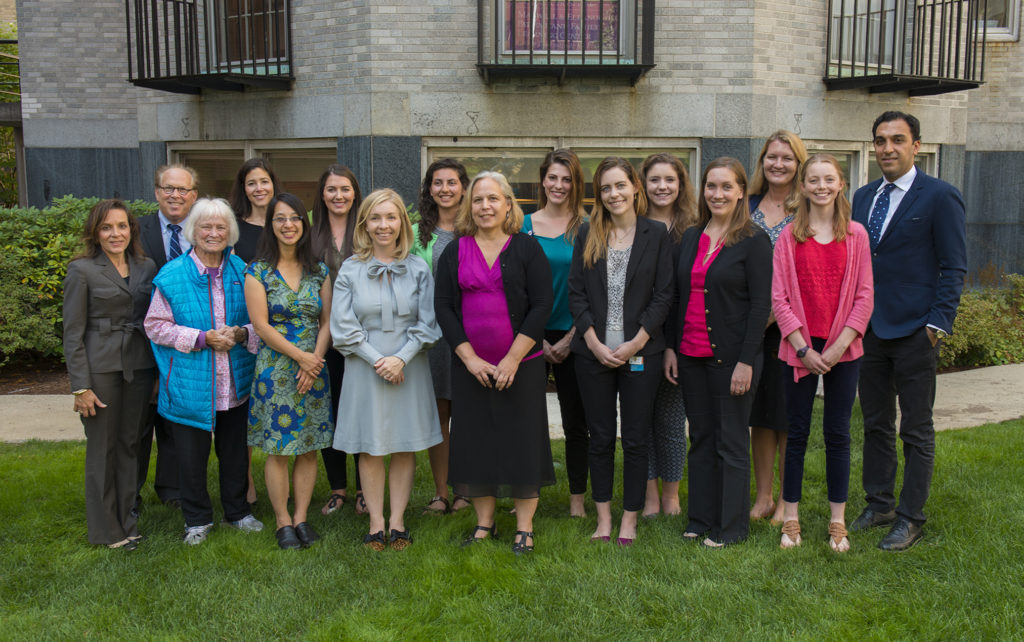
Another year, and an opportunity to reflect on the past year. It has been another very active year in the field of women’s mental health, with no shortage of articles in this field. We continue to see analyses addressing the reproductive safety of various medications; many of these studies have relied on large medical databases and have made a diligent effort to control for potential confounding factors, including maternal psychiatric illness.
Many studies have focused on screening for perinatal mood and anxiety disorders (PMADs), with professional organizations, including the American College of Obstetricians and Gynecologists (ACOG) and the American Academy of Pediatrics (AAP), highlighting the importance of attending to the mental health of pregnant and postpartum women.
New Research Studies at the Center
The Center has been abuzz with activity this fall. We are very excited about several new studies:
The MGH Postpartum Psychosis Project (MGHP3) will examine women who have had a previous episode of postpartum psychosis, with the goal of identifying potential genetic risk factors for postpartum psychosis so that we can identify and provide better care to women at high risk for this illness.
We have a new study exploring the use of a Neurosteroid Intervention for Menopausal and Perimenopausal Depression. Neurosteroids have gained considerable attention this year as a novel approach to the treatment of depression. SAGE-547 or brexanolone, a derivative of the neurosteroid allopregnanolone, has demonstrated promising results as a treatment for postpartum depression. Our new study will explore a similar neurosteroid for the treatment of perimenopausal and menopausal depression.
We continue to explore the use our new app, the MGH Perinatal Depression Scale . Our hope is that we can use this tool to increase and refine screening for perinatal mood and anxiety disorders.
We will soon be recruiting for a study where we will explore the use of mindfulness-based cognitive therapy (MBCT) to reduce risk for relapse in pregnant women with histories of major depression. One of the most exciting aspects of this study is that this intervention will be delivered on a digital platform, which means that we would be able to reach a far greater number of women, including those living in underserved areas.
Highlights in Women’s Mental Health from 2018
Sage Pharmaceuticals released more data on a novel treatment for postpartum depression: SAGE-547, now called brexanolone. Soon we should be hearing more about SAGE-217, an oral version of this compound, and the results of an ongoing placebo-controlled trial in women with PPD.
Brexanolone: A New Drug for Postpartum Depression
FDA Supports Intravenous Brexanolone for Postpartum Depression
Brexanolone for Postpartum Depression: More Data, But Still Some Questions
Clinically we are seeing more and more women of childbearing age who are using cannabis and related products on a regular basis. One of our concerns is that many women perceive cannabis as being “safe” to use during prengnancy and may be unaware of the potential risks associated with cannabis exposure during pregnancy.
Cannabis and Pregnancy: What the Dispensary Might Tell You
Pregnant Women in the US: Less Alcohol and Cigarettes, More Pot
Marijuana Use Increasing Among Pregnant and Postpartum Women
More Data on Marijuana and Breastfeeding
We continue to gather data on the use of atypical antipsychotic agents during pregnancy.
New Research from the CWMH: Quetiapine (Seroquel) and Pregnancy Data from the National Registry
National Pregnancy Registry for Atypical Antipsychotics
We are looking forward to another exciting year. As always we are grateful to our many readers! We appreciate your thoughtful comments and your efforts to bring this important information to a wider audience.
The MGH Center for Women’s Mental Health
